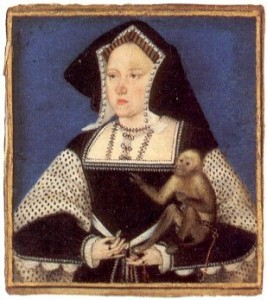 On this day in history, 21st June 1529, Henry VIII and his first wife, Catherine of Aragon, appeared at the Legatine Court at Blackfriars, London.
On this day in history, 21st June 1529, Henry VIII and his first wife, Catherine of Aragon, appeared at the Legatine Court at Blackfriars, London.
The purpose of this court, which was presided over by Cardinals Wolsey and Campeggio, was to listen to the testimonies of both the king and queen regarding the validity of their marriage and to rule on the marriage.
Henry VIII wanted the marriage annulling so that he could marry Anne Boleyn. He addressed the court speaking of his love for his wife, but also of his troubled conscience regarding the fact that he had acted contrary to God’s law in marrying his brother’s widow. He felt that a dispensation should never have been issued for such a marriage. It may have been an impassioned speech, but it was not a patch on Catherine’s speech and it’s safe to say that she stole the show that day.
Also on this day in history, 21st June 1553, letters patent were issued changing Edward VI’s heir from his half-sister, Mary, to Lady Jane Grey – click here to read more.